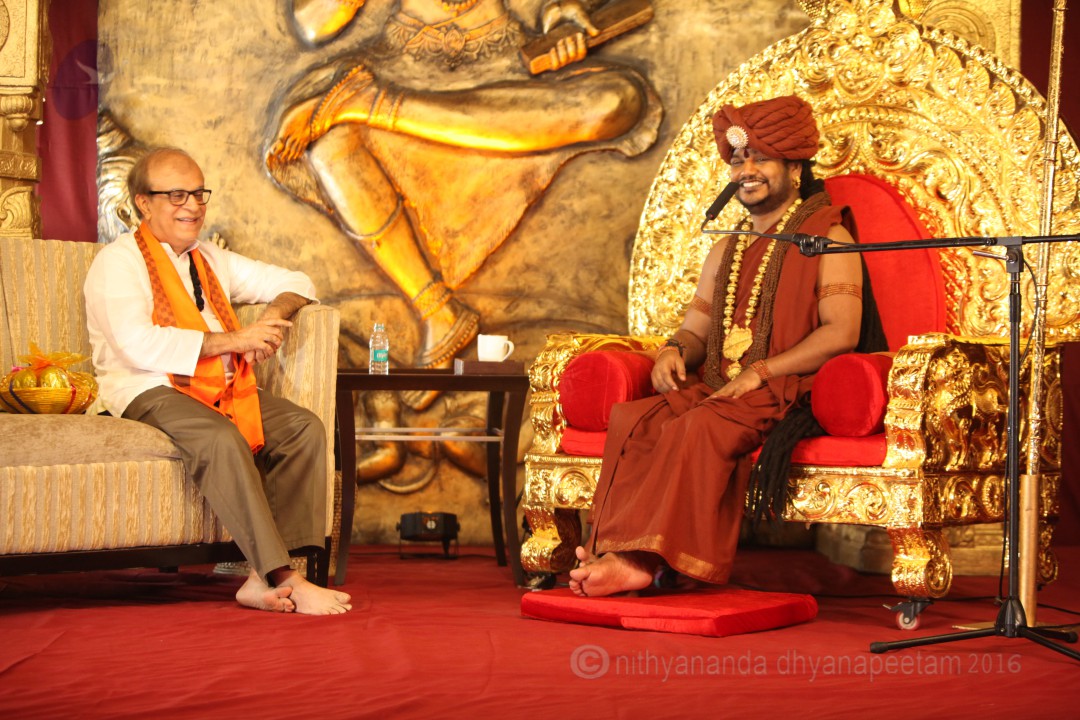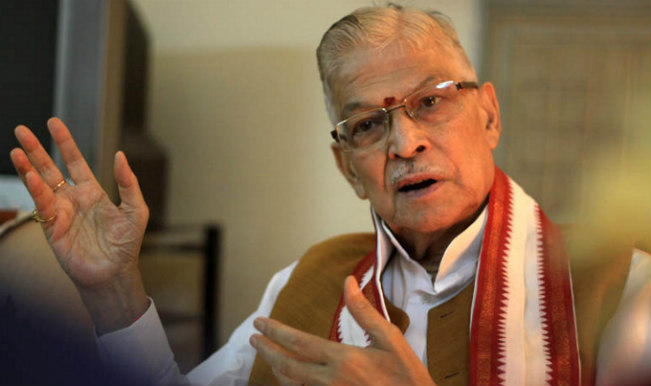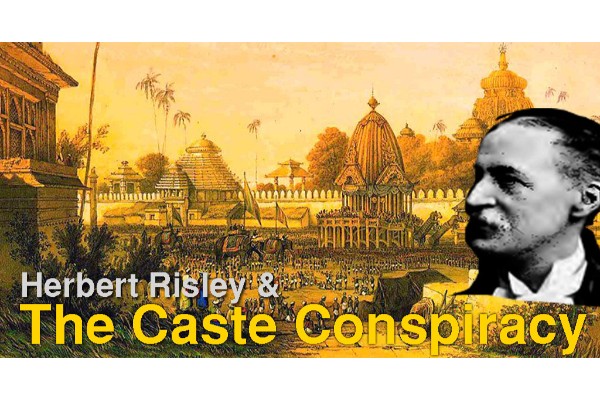A God Who Plays
I would never trust a God who does not play. This is because ‘play’ represents the simple and spontaneous joy in being. It is an small eruption into human experience of the absolute freedom of the transcendental Paramatman who is self-projecting this phenomenal world of appearance as His play. Thus, a God for whom play is alien is separated from one of the key elements of Divinity and we must question if this entity could be the true sovereign of the Universe.
The same can be said for a God which must command he be loved (Deut. 6:5) with the same voice of authority with which he demands fear (Deut. 10:12). The word ‘love’ in such circumstances is conditional and only a mask for fear.
The God who Commands Fear
We find such an entity in the Near Eastern god Jehovah. In the Ugaritic texts (which predate the Hebrew language) it is revealed that he began his career as a lesser son of the Canaanite god El and a war god (KTU 1.1 IV 14). Later, as the Hebrews developed he became exalted by them as the Ancient of Days (Daniel 7:9-11) who thunders from his floating throne of strange chimeras (Ezekiel 1) or burning winged snakes (Isaiah 6:2). He is the god of the Hebrews, the First Person of the Christian trinity and also Allah. Thus, he is the lord of the Abrahamic Faiths. There is a strong current in these faiths that the inner life of their adherents is driven by this fear which he demands (Deuteronomy 6:13, Acts 5:11 & Quran Al-Baqam 41,): so much so that fear is often the foundation of these systems. This is not a god who plays since that would reduce anxiety.
This emotional state reinforced by authority can create a psychology of self-loathing to justify and therefore hopefully placate that authority by agreement. One hopes a pleased bully will stop his bullying. What can result is that self-humiliation and suffering become idealized virtues as one is locked in a spiral where everything human is stained as sinful simply by virtue of its existence.
Another way this fear manifest itself is an outward projection as various wars against sin and the struggle to constitute the chimerical kingdom of god upon this earth. As in the case of Calvin’s Geneva and ISIS these cult communities can become horror shows in their doomed war against human nature. This dynamic in its inner and outer expressions has driven a great deal of suffering across the globe.
In Christianity in particular, the basis for this anxiety it seeks to inculcate is the Fall of Man. To Fundamentalists Christians, the Fall of Adam 5777 years ago brought the curse of Jehovah upon all human beings who, they claim, merit eternal torture (Romans 5 & 1 Corinthians 15) as a result. This is the doctrine of Original Sin. While degrees vary among Christians sects, they share this basic view.
An exaggerated degradation of human life and the material world is characteristic of Christian literature from an early point. Human beings are “gloomy bodies amid phlegm and blood, among these bags of filth and vessels of urine” (Arnobius, ‘Against Heresies,’ Book 2). In this view, man is contaminated. Tertullian writes “On account of his transgression man was given over to death, and the whole human race, which was infected by his seed, was made the transmitter of condemnation” (The Testimony of the Soul 3:2). The very act of being born results in condemnation by Jehovah, which applies even to infants and young children, as Cyprian of Carthage wrote, “born of the flesh according to Adam, he has contracted the contagion of the old death for his being born” (Cyprian, Letters 64:5). For this reason, infants and young children who die unbaptized also must suffer judgement from Jehovah for Adam’s sin (Augustine, ‘Against Julian,’ Book 5, Chapter 11).
In the extreme view, that of Calvinism, man’s nature is not only revolting and corrupted but is “a seed-bed of sin, and therefore cannot but be odious and abominable to God” (Calvin, ‘Institutes’ Book 2, 1,8) and further man “cannot move and act except in the direction of evil” (ibid, 3,5).
Within these currents of Christian thought, the ‘spiritual life’ is founded upon “distrust of self” and we please Jehovah when we “learn to despise ourselves as wretched creatures” (‘The Spiritual Combat,’ Scupoli, Chapter 2). In some circles, such as those of Francis de Sales representing the Counter Reformation, it is advocated that believers are to make a mantra of knotted cords to psychologically reinforce these views by whipping the psyche.
“I am only the corruption of the world and a sink of ingratitude and iniquity … I have left neither a single sense nor one of my mental faculties uncorrupted, unviolated and undefiled.”
- ‘The Devout Life,’ Francis de Sales, #12
An effect of this is that the degree of distrust of the self and denigration of individual value equals the power of some external authority who speaks for Jehovah in some manner over the life of the believer.
From this arises a glorification of human suffering, which becomes an act of worship of Jehovah. After all, we deserve it just for being born. The 20th century figure of Mother Theresa was one of the exemplars of this sadomasochistic tradition in Christianity.
“Pain and suffering have come into your life, but remember pain, sorrow, suffering are but the kiss of Jesus – a sign that you have come so close to Him that He can kiss you.”
- Quoted in ‘Daily Skeptic 2016,’ page 36
To enjoy and embrace suffering as a punishment for our existence is deeply grounded in the devotional tradition from which she emerged. In books of spiritual council it is advised,
“We are forbidden to implore God that these gifts (of suffering) may cease, especially when they strongly beset the heart … it can only increase the soul’s merit and hasten its progress on the way to unending virtues.”
- ‘Self-Abandonment to Divine Providence,’ Caussade, Book 7, Letter 6
There is no play for those who follow this blood-spattered path illuminated by the torches of burning humans (‘Once to Every Man and Nature,’ Stanza 3). One might object that this is not the totality of either Christianity or the Abrahamic Faiths. That may be, but it is a very historically deep and strong trend and not an obscure component built into the totality, such as the Shite Moslem tried to re-engineer all Hinduism in the eyes of the few who watch CNN into the Aghori Sadhu follies.
A God who Plays
It is in Hindu lore that we find the Gods who play; those Devas whom the ancient Seers called “friends” (Rig Veda I 70:11; III 5:2; VI 60:14; VIII 98:6) a term the Hebrew prophets never dared to apply to Jehovah in his black clouds. It is Lord Krishna with the tales of His leelas, His innocent play, who shows us the way
With His leelas He delighted the simple cowherds of Vrindava. This was not simply a side-effect of His youth and innocence, but an aspect of His teaching which is the reason that the Puranas so focus on these episodes. He is teaching us to follow Him in joy and to pursue Him in bliss.
Human bliss is a limited reflection of the state of being of Brahman (Taittariya Upanishad 2.8.1). For this reason, our simplest joys can serve as Ariadne’s Thread to lead us out of the labyrinth of the artificial constructions of the biographical ego. This can even become a spiritual discipline.
“Wherever the mind finds satisfaction, let it be fixed there, for there itself the nature of Supreme Bliss will become manifest.”
- Vijana Bhairava #74
We participate in that same being. The Divine dwells in the cave of the heart (Svetasvatara Upanishad 3.13) and the moments when we are closest to this are states wherein we forget the boarders of the ego, then the illusionary veil of differentiation is thinned by the unity of the experience. Joy is an important pathway as it is a droplet of the ocean of the experience of Brahman.
“You are that Consciousness, Bliss – Supreme Bliss, in and upon which this universe appears superimposed, like a snake on a rope. Live happily.”
- Astavakra Samhita 1.10
The key to Liberation ‘I am That’ (Chhandogya Upanishad 6.10.3) is the opposite of Francis de Sales’ demonic mantra ‘I am trash.’ His daily recitation has two failings; on a shallow level these statements are often reaction formations where one states indirectly one’s true views through the medium of the opposite to make it acceptable: in other words, ‘I am trash’ is proclaiming one’s great moral humility, thus saintliness, and is thus a form of arrogance.
True humility is silent. But more nefarious, this is dragging one deeper into spiritual darkness. In Tantric thought, Ānava Mala is identification of the self with limitation and to reinforce this only widens the gulf of the false perception of duality that we are one the Divine another. Instead of following these dark creatures we should join Lord Krishna by catching their tail and dancing on their head, as He did Kaliya-Naga so that they too may be tamed and integrated into the wholeness that is life.
Virochana Asura is a researcher and poet who lives in the San Francisco Bat Area of California. He grew-up as a Christian in rural Ohio in the 1970’s and eventually became a devotee of Lord Shiva. He has several short works on Amazon Kindle, among then ‘A Study of Reincarnation in the Upanishads’ and three works debunking the Christian missionaries: ‘The Goblin Market: A Critical Examination of Missionary Appeals to Hindus,’ ‘Corinna’s Mirror: A Critical Examination of Missionary Propaganda in ‘Death of a Guru’ by Maharaj’ & ‘Cutting Shurpanakha’s Veil: Challenging the Claims of Missionaries about Vedic Texts.’












Whats up very cool site!! Guy .. Beautiful .. Wonderful .. I will bookmark your blog and take the feeds additionally?KI am happy to seek out numerous useful info here in the put up, we need work out more strategies on this regard, thanks for sharing. . . . . .
Hi! Do you know if they make any plugins to protect against hackers? I’m kinda paranoid about losing everything I’ve worked hard on. Any suggestions?
Lovely just what I was searching for.Thanks to the author for taking his time on this one.
amei este site. Para saber mais detalhes acesse nosso site e descubra mais. Todas as informações contidas são informações relevantes e diferentes. Tudo que você precisa saber está está lá.
Howdy! I simply want to give an enormous thumbs up for the good information you’ve right here on this post. I shall be coming back to your weblog for extra soon.
I have recently started a blog, the information you provide on this website has helped me tremendously. Thank you for all of your time & work.